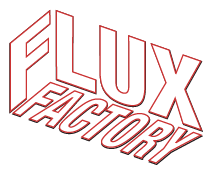
Column Shifting: Cultural Equity & Organizational Sustainability Fellowship

The success of non-commercial art spaces in New York City is tied to their ability to negotiate with the market, both to maintain a physical presence and to sustain long-term programming. There is an inherent tension between operating a non-commercial space and surviving in one of the most competitive real estate markets in the country. This tension amplifies in neighborhoods that are experiencing gentrification, where more and more resources have to be used for operating costs.
As organizations raise money to survive, they may deviate from their missions, lose their connections to place, compromise on programming, overwork and underpay employees, and even become complicit in the market processes that can ultimately result in their displacement.
To succeed, spaces need access to wealth or the expert knowledge and social networks to effectively fundraise. Spaces organized by and for historically marginalized groups in the city tend to have the most difficulty maintaining operations for the long term.
To gain a better understanding of the relationship between financial stability and cultural equity in non-commercial art spaces, Flux Factory’s Cultural Equity & Organizational Sustainability Fellow, Oksana Mironova, will conduct a series of in-depth interviews with artists and activists, as well as staff and volunteers at art spaces and supporting organizations. In April and May 2017, she will organize a series of events at Flux Factory focused on financial stability and cultural equity.
 Art & Community Development Discussion
Art & Community Development Discussion
Art programming and community development can have a symbiotic or an adversarial relationship. On one hand, art spaces, from non-commercial community spaces to for-profit galleries, can be used by real estate interests to package neighborhoods and hasten gentrification. On the other hand, art and culture often plays a role in helping communities self-identify, develop identities, and as an organizing tool against displacement. In this panel we will explore the messy relationship between community development, art, and gentrification, as well as the line between the artist and community member in New York City. Further, we will brainstorm about potential ways to use art and culture programming and spaces to mitigate displacement.
Panelists
Mei Lum, 5th generation owner-in-training of her family’s porcelain shop, Wing on Wo & Co (W.O.W) and founder and director of W.O.W’s community initiative, The W.O.W Project. Inspired by her family’s pivotal moment in deciding whether or not to fold their 92-year-old porcelain ware small business, Mei founded The W.O.W Project to engage community members in conversation and innovative idea generation about the future of their neighborhood.
Catherine Green, Founder/Executive Director ARTs East New York
Photo of Greater Jamaica Development Corporation and the Department of Cultural Affairs’ Visioning Summit. Photo credit to Amina Hassen.
Who Produces NYC’s Culture?
Thursday May 25, 7pm-9pm
Flux Factory Gallery
Panelists
Brooklyn native Taja Cheek is a cultural worker and multi-instrumentalist who has worked closely with artists to realize projects at institutions including Creative Time, the High Line, MoMA PS1, and Weeksville Heritage Center. She co-operates a rehearsal space and venue in her home.
Noé Gaytán is an artist, educator, and activist based in Brooklyn, NY. He is a member of Michelada Think Tank, a collective that brings facilitates discourse and builds community around issues facing artists of color. Recent projects include residencies at Sand Diego Art Institute and Los Angeles Contemporary Exhibitions. He is also the Gallery/Studio Program Coordinator at the Brooklyn Museum.
Ali Rosa-Salas is a Nuyorican curator from Brooklyn who aligns her practice with dance, performance, and visual art. She is one half of MAMI, a curatorial initiative started in 2016 with Dyani Douze. They’ve partner with womxn of color and collectives to organize community gatherings that center our survival (@mami_dna).
Risa Shoup is the Executive Director of Spaceworks, a nonprofit that develops space for all New Yorkers to gather and engage in their chosen cultural practices. Previously, they were the Executive Director of FABnyc, an arts services organization based on the Lower East Side of Manhattan and the producer of the podcast, artwork, hosted by Risa. Additionally, they are also a proud member of Naturally Occurring Cultural Districts – New York, and with NOCD-NY, they are a consultant on CreateNYC, NYC’s first-ever cultural plan.
Antonio Serna is an artist working in New York with both a collective and studio based practice. He is currently working on Documents of Resistance: Artists of Color Protest (1960-2016). Additionally he is a member of artists of color bloc an cultural worker advocate group focusing on artists of color, and Arts & Labor’s Alternative Economies Working Group.
The life and death of non-commercial art and culture organizations in New York City today is tied very closely to their ability to negotiate with the market, both to maintain a physical presence and to sustain long-term programming. The spaces that ultimately succeed tend to be those that have access to wealth or the expert knowledge and social networks necessary to effectively fundraise. This reinforces existing hierarchies by limiting the ability of marginalized groups to define what New York City’s culture will look like.
During this panel, we will explore ways in which non-commercial art and culture organizations can promote equity both through their programming and through their organizational structure and fundraising, while surviving in a world of decreasing resources and in NYC.

Column Shifting is a research and public programming initiative at Flux Factory that provides funded housing for 2 selected participants exploring the relationship between financial stability and cultural equity in small art spaces in NYC, organized by Carina Kaufman-Gutierrez and Alex Nathanson.

